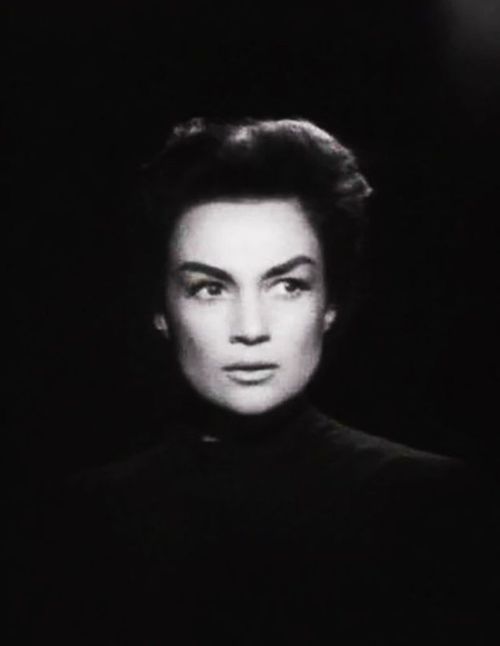The bio that Valeria sent me will give you more context than my pathetic Internet searches, so here it is in full:
Valeria Villegas Lindvall is a Doctoral candidate in Film Studies at University of Gothenburg, Sweden. Her research aims to bring a feminist focus to the understanding of the Latin American female monster, and she has presented her work in Sweden, Mexico, England, Scotland, Estonia and now Germany. She is a contributing editor in MAI: Feminism and Visual Culture and has worked and collaborated in several publications, most prominently as a co-editor, writer and translator at Rolling Stone Mexico.
Her most recent publication is The Flying Uterus: From Abjection to Divinity in the Book of Birdie (2016) (MAI 3: spring 2019) about the exercise of female writing and feminist authorship. In addition, she has two forthcoming book chapters for 2020. One included in Women Make Horror (ed. Dr. Alison Peirse), about Gigi Saul Guerrero’s unique portrayal of the Latin American female monster, and another in Screen Bodies in the Digital Age: Violence, Voyeurism and Power (ed. Dr. Susan Flynn), about the horrors of the digital screen in Issa Mazzei and Daniel Goldhaber’s Cam (2018).
Her essay on "The Book of Birdie" (2017) is excellent. I wish I had read it before interviewing Elizabeth Schuch last year because it provides the type of deep analysis that I crave when I really love a film. Please enjoy this interview with Valeria where we discuss her talk at the Final Girls Berlin Film Festival (FGBFF), how it feels to leave a job you love for a scholarly pursuit, and Latin American folklore. This conversation has been edited and condensed for clarity.
Interview with Valeria Villegas Lindvall:
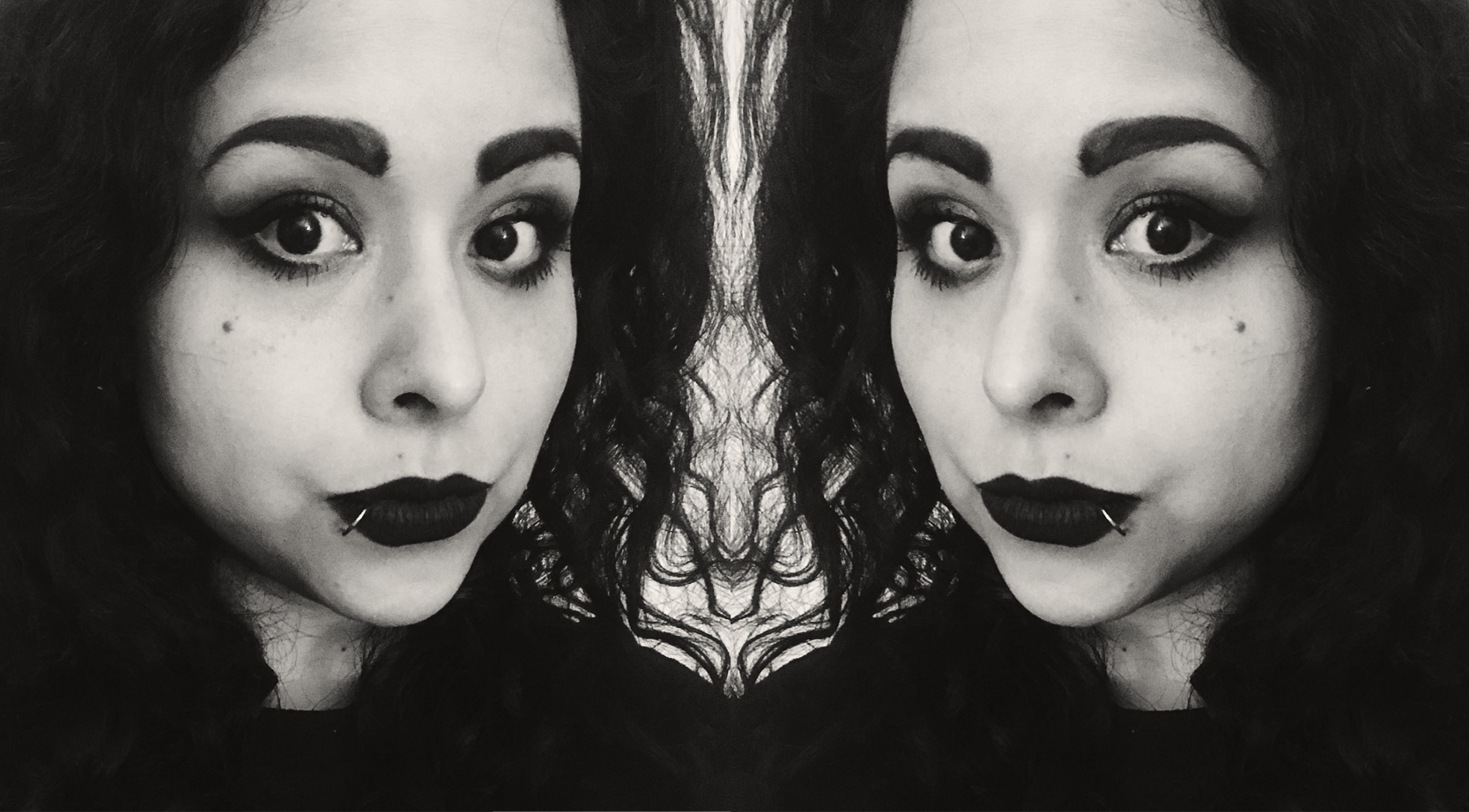
WiR: Where are you currently at in the Ph.D. process? Have you started your dissertation yet?
VVL: I'm kind of in the middle. The position here is four years unlike other places where it's just three. You take a bunch of qualifying exams and stuff before starting on the dissertation. I'm actually in the middle of writing a chapter that sort of inspired what I'm going to talk about at FGBFF.
What is your dissertation topic?
My dissertation focuses across Latin American film horror film and concentrates on different tropes of representation regarding female monsters, like the weeping woman or the bad mother recurrent in Mexican visual culture. I also discuss the figures of the witch and the she-wolf. There is a conversation that I want to have with Latin American film in regard to feminist perspectives about monstrosity without leaving behind the binds of gender as a product of colonial intervention. I find that to be a very interesting sort of conversation, introducing both feminist philosophy and decolonial thought.
Did you do all of your schooling straightaway or did you take breaks?
I had a weird trajectory. My undergrad is actually in communication sciences. Since I was in high school, I was always convinced that I wanted to write. I wasn't sure with what tone, but for the longest time it was just like, "Yeah, I'm going to become a journalist." I went into my undergrad with that in mind. Then I had the opportunity to be an exchange student. I was sort of pursuing journalism and film, not necessarily horror film, but I was very interested in it. I felt like I wanted to eventually get an MA. I should mention that I'm originally from Mexico and that I studied there during undergrad. After the exchange, I really wanted to do something scholarly. In between, when I graduated from my undergrad, I started working originally as a translator, then eventually as a journalist. I worked with Rolling Stone Mexico for almost 7 years.
I was very passionate about the work. I mean, I'm still very passionate about music and pop culture, but at the same time, I was doing my MA. I applied for a number of Ph.D.s but realized that it's kind of frustrating at the beginning because you're so set on keeping the momentum going. In retrospect, the timing just wasn't right. I came back to Mexico and worked on site for Rolling Stone for all those years. I was still doing some scholarly work, so I was also teaching at the university. An opportunity for the Ph.D. came up, and I was like, yeah, maybe now I'm ready to do it. I had to leave Rolling Stone and restart that path.
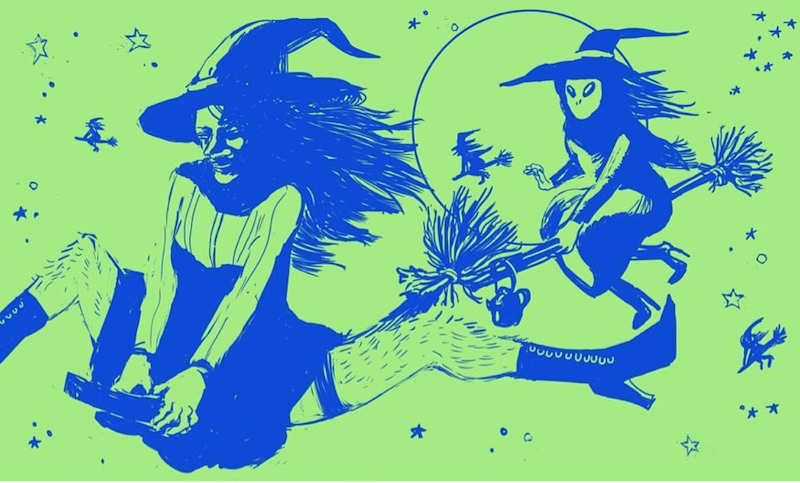
I like hearing stories of people who didn't necessarily take the standard route ... it makes me feel like hope isn't lost for my own future.
I definitely felt rusty at first. Even though I was teaching [while working at Rolling Stone], I was not doing research. I was drawing from stuff that I was learning while I was teaching, but it wasn't the same as having a full-time chance to do academic work. When I came here [to the University of Gothenburg], I felt a little bit out of it because a lot of my colleagues had tremendous academic careers behind them. I really admire that sort of gumption to complete everything in one streak.
I think every new experience makes you a better, more unique writer, even if what you were doing in that time wasn't necessarily academic.
I really hope so. I have to say that it feels so weird but also so wonderful to be on the other end of an interview. Interviewing people was my favorite part of the Rolling Stone gig.
I love talking to people who specialize in topics that I'm interested in but don't know much about. I'm a fan of Latin American horror but have never studied it. I'm bummed that I can't actually be there to listen to your discussion, but can you give me a primer on what you're talking about at FGBFF?
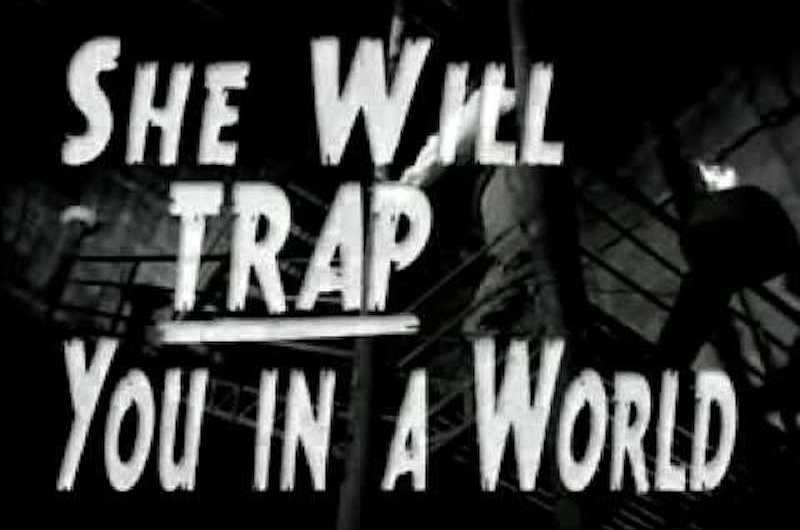
My connecting thread is the idea of the bad mother. I saw it as a trope that is very consistent in Latin American folklore. In Mexican visual culture, it has a great deal to do with this notion about what Mexicanness is. For me, it was very interesting to trace this idea of the bad, faulty, fallible mother ... the weeping woman, which in Mexican culture is very close to the idea of the indigenous mother, Malinche.
This conflict and its negotiation were something I could track as very alive in the visual culture since the inception of horror film in Mexico. The first horror film is from 1933, and it reflects upon the idea of La Llorona, the weeping woman, as basic to the writing of Mexicanness. What I'm going to talk about in Berlin has a great deal to do with how gender is constructed through film -- not only horror, but also melodramas -- where the bad woman and the bad mother are almost like staples in Mexican identity. They're somehow doomed to pay for what they've done. In tracking that, I was able to try to create some sort of genealogy of the genre of horror film at large.
How does the bad woman and the bad mother sort of pervade throughout genre filmmaking? It was a constant process of using horror conventions to negotiate what is happening historically in those breaking points in Mexico without forgetting that it is so very close to the idea of misogynation of indigenous trauma, of intergenerational trauma. To do that, I've started tracking it from 1933, and followed it through the changes in genre filmmaking in Mexico, with stops at different breaking points. 1933 is a vital breaking point -- post-revolutionary Mexico. The 1960s were a moment where stuff like "The Curse of the Weeping Woman" (1961) made it to U.S. TV in dubbed versions and became very successful.
And then now, with more current manifestations of it and non-traditional ways of looking at the weeping woman or the indigenous mother. Issa López, a contemporary filmmaker, became incredibly successful with "Tigers Are Not Afraid" (2017). Gigi Saul Guerrero, who is working in Canada, is constantly re-evaluating Mexican identity through horror. I find it incredibly interesting that these filmmakers have been able to turn that archetype on its head from a female perspective.
Can you tell me more about the film from 1933 that kicked everything off?
That film is called "La Llorona" (1933) and is directed by Ramón Peón. For me, it's so interesting that it's sort of like the first major piece of genre film in Mexican visual culture. There was one a little bit before, but it wasn't a Mexican production. The original Tod Browning "Dracula" (1931) had a side version, but it was kind of like a shot by shot remake, just directed (by George Melford) and acted in Spanish. The film from 1933 is more relevant to me because it has to do explicitly with La Llorona as a national myth.
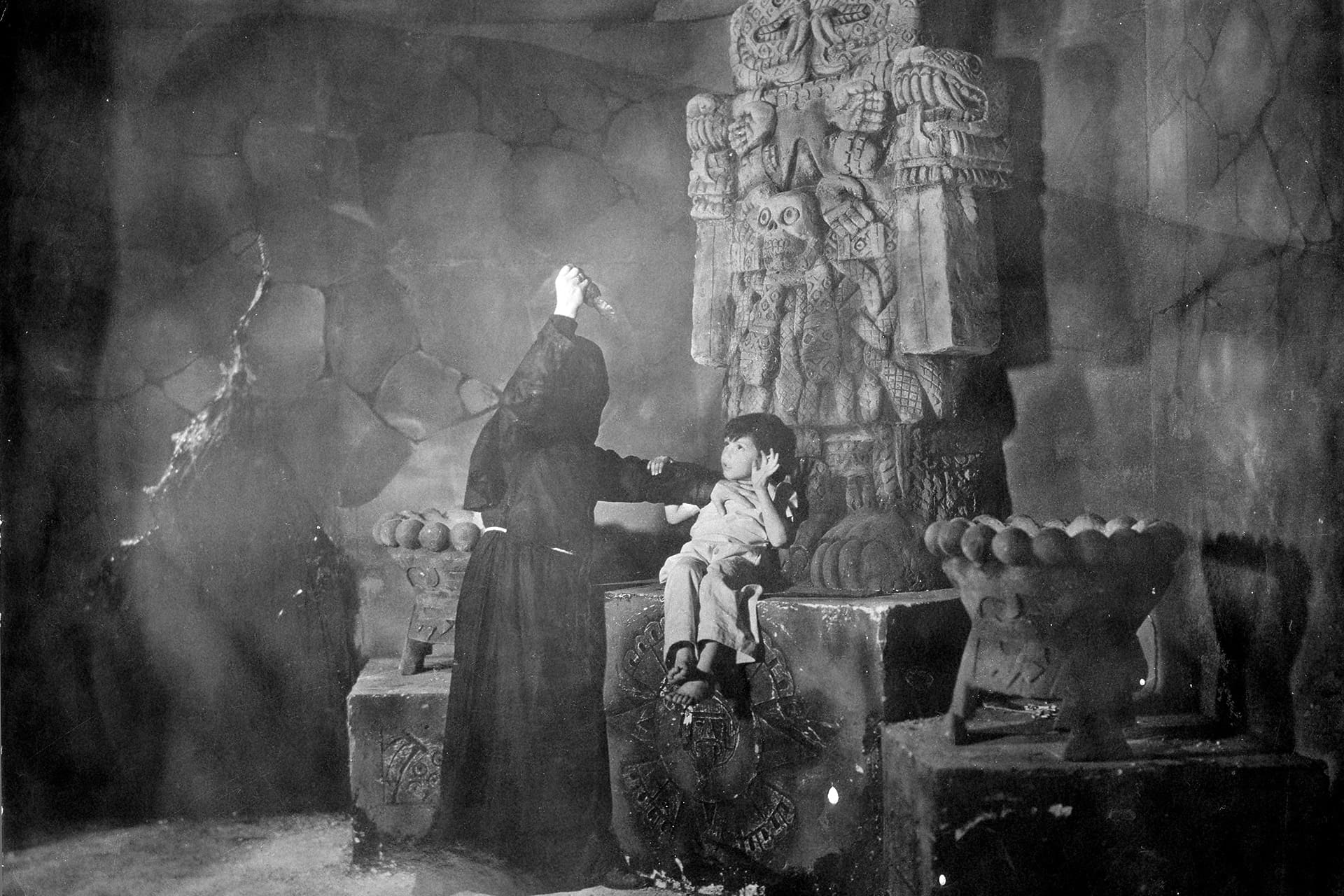
You mentioned Issa López as one of the more recent filmmakers to do something interesting with the La Llorona trope. Are there other Mexican female filmmakers who have done this?
There have been. I think it's a good moment to revisit La Llorona as a trope because on one hand, yes, there are more women involved in horror filmmaking, even though some of them are doing it in short film form. Sofia Carrillo is one of them. What she's saying isn't exactly related to the trope of La Llorona, but her work is exciting. Right now, I'm really zooming in on Gigi Saul Guerrero's work. You've probably heard about her because she recently released "Culture Shock" (2019).
I wrote a chapter for a book on women making horror films that deals directly with, not exactly the figure of La Llorona, but this negotiation about ways to deal with colonial trauma. It seems to be suspended in the past but keeps popping up. Essentially, La Llorona is a trope that is tied to the trauma. Her origin in folklore has to do with misogynation or with this idea of an indigenous woman falling in love with a Spaniard who eventually leaves her. Because of this, she is driven to madness and kills her children. Her suffering is the suffering of colonial trauma, so I cannot see them as separate.
Guerrero did a fantastic, revelatory rendition in her short film, "Madre de Dios" (2015), where a white body gives birth to some sort of sinister offspring while being coerced by Latin American witches or brujas. To me, it's still a reiteration of that negotiation and how we deal with that past. I've written a chapter about these relations in different parts of her work for a book that is coming up with Rutgers this year called "Women Make Horror." Even if it's not explicitly connected to the trope of La Llorona, it still has to do with the very core of colonial trauma as it comes out in horror film.
Have you seen Mati Diop's "Atlantics" (2019)? The way you explained the colonial trauma reminds me of that movie.
It's on my list, but I haven't been able to watch it yet.
It's Senegalese, but the way she uses folklore to explore migrant trauma is really interesting. It's not exactly a horror film, but it plays with several genres. I feel like there are probably a bunch of different cultural versions of this trauma that share similar DNA.
For me, it's remarkable that this legend that is so tied to Mexican visual culture has many iterations throughout Latin America. There is this wonderful book by anthropologist, Milagros Palma. She has done a great deal of work with Latin American folklore. It's fascinating that there is this blank slate in La Llorona where you can have this legitimization of colonial romance and forbidden love, which is a very romantic way of looking at rape and genocide.
On the other hand, you have this point of resistance. For me, La Llorona, is not a figure that gives in to that oppression but begs us to ask why she's the source of horror instead of the conditions that made her that way. I tried to recuperate her from that head space. Of course, I'm not the first one to do this. There's a great deal of (especially) Chicana work and Chicana scholars that recuperate this idea of who Malinche was. Why is there such a fierce denial of indigeneity when being indigenous is also a political category? All of these questions are so relevant because they never seem to go away. She seems to be dealt with as a relic of the past, which is sort of the beef that I had. I don't know. You probably watched "The Curse of La Llorona" (2019), which is part of "The Conjuring" franchise.
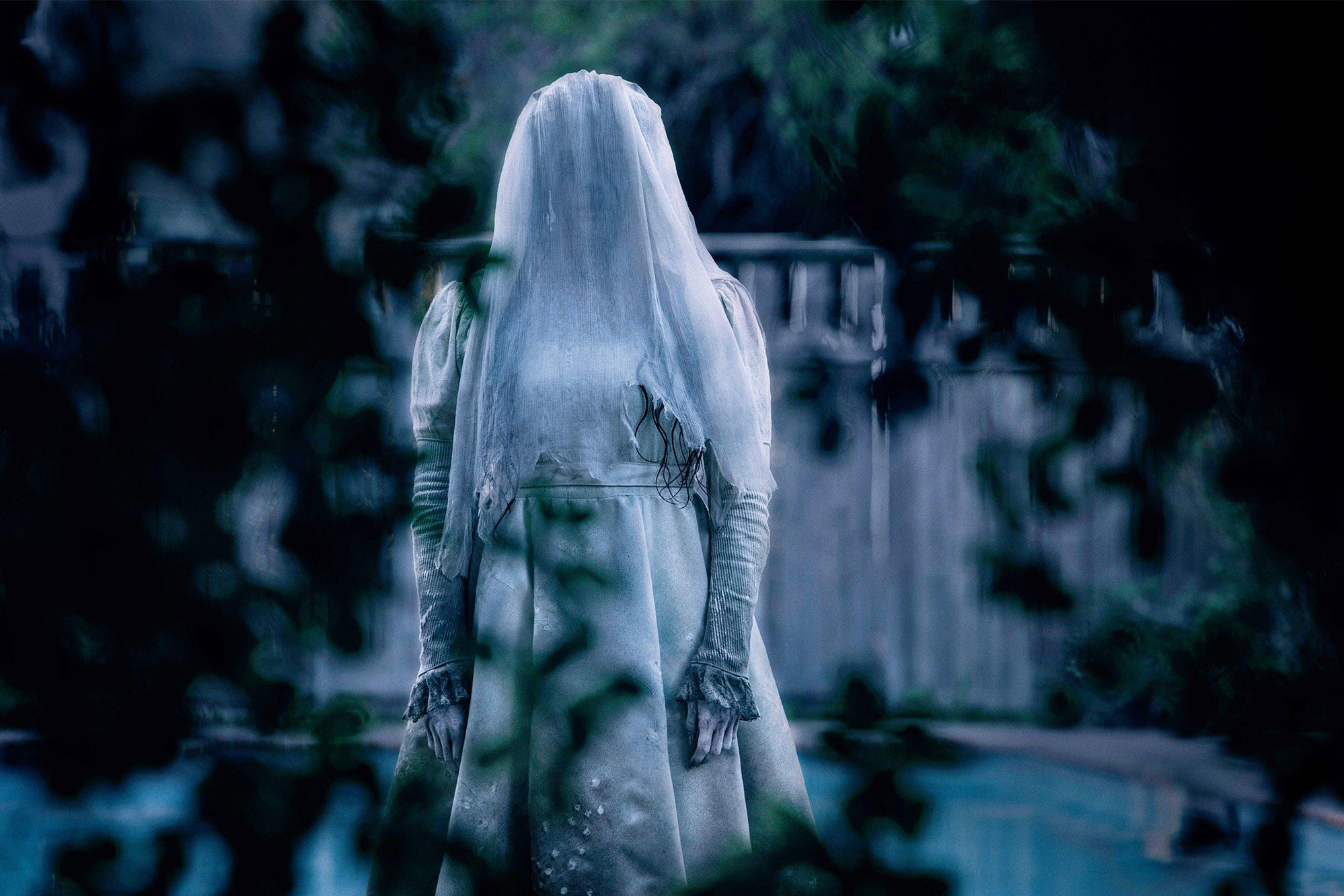
Yeah, I saw it last year at SXSW.
I went into such a rant about that film. But at the same time, you have the applicability of La Llorona as resistance. And I can't wait. I haven't watched it yet, but Jayro Bustamante, a Guatemalan director, uses La Llorona to talk about the [Guatemalan] civil war. Instead of allowing her to be this sort of disembodied presence, there's something that I find incredibly powerful in these stories because they allow us to make sense of the breaking point and trauma. Because she's not going away anywhere.
What did you grow up watching in Mexico? Do you remember the first thing you saw that really got you interested in film?
For me, it was music very early on. My love of film as a scholarly pursuit happened in my early adulthood ... maybe late teens. As a kid, horror, sci-fi, and fantasy were staples of what I watched. Of course, there were also dubbed movies that I watched a lot ... "Ghostbusters" (1984), "Critters" (1986), "Gremlins" (1984), "It" (1990). My dad is a big fan of those genres. When there's a new series or something, he's the first one in line to see it, especially now that he's retired.
While I grew up with these movies, they weren't really a special interest. Watching films often was just something that we did as a family. I was a very weird child, though [lauhgs]. I remember being fascinated by all things Halloween. Not the film, but the cultural event. It was exciting when I realized that film could be an academic pursuit.
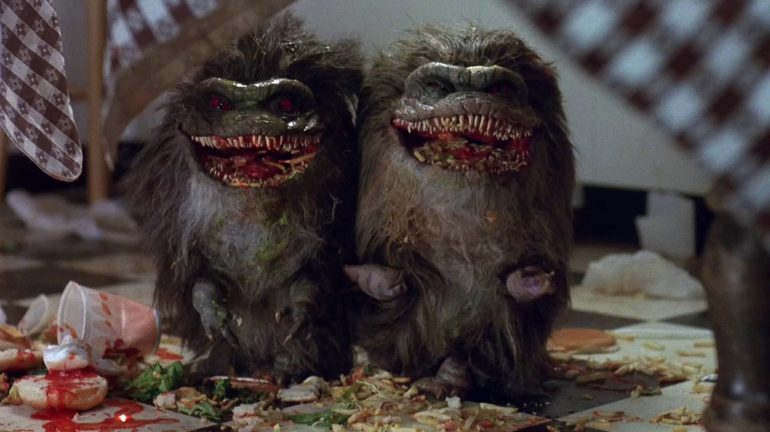
It's definitely something I never realized as a kid. I remember dreaming about being a lawyer. I had no idea you could turn a love of movies into a job!
I still can't believe it. It happened to me with music and now it's happening with film. Hopefully it will be for the long haul.
After you finish your dissertation, what's your dream job trajectory?
If I could do anything, I would definitely go back to writing about music, at least in some capacity. Right now, I cannot conceive of my life without writing. I definitely get something really special out of teaching, too, even though there's a bunch of bureaucratic stuff that goes along with it. I think my ideal trajectory would be to finally publish a book and to keep writing -- about horror and music. Teaching would definitely be a great extra ... I really do like it.
I loved your essay on "The Book of Birdie." Can you talk about what drew you to that film? I'm surprised that there hasn't been more scholarly work written about it.
That piece is very dear to me because it was my first journal article and piece of published scholarly work. I watched it during Women in Horror month at an event in Stockholm. I found it so beautiful and was captivated by the sense of female authorship. I had not seen such a provocative rendition of menstruation before. When I watched it, I knew immediately that I wanted to write something about it, especially because I grew up in a very Catholic household. I haven't seen much written about it either. I knew that it ticked those boxes about feminist authorship and how to write from a feminist perspective as a methodology ... like the body as some sort of methodology. I put so much love into it.
I discussed with several of my colleagues during my presentation of the essay and they contributed so much. It became this thing where I also had some really interesting themes and input and questions by feminist scholars. I saw your interview with Elizabeth -- she was so kind and gracious. She wrote to me afte the essay came out and I was very, very happy and grateful that we could have that sort of dialogue because in the end, academic pieces tend to be a monolith of time with little response. For me, it was a good starting point in figuing out where I stand on feminist philosophy and where I stand on writing as a feminist. I am forever grateful that I was able to see it at that festival.
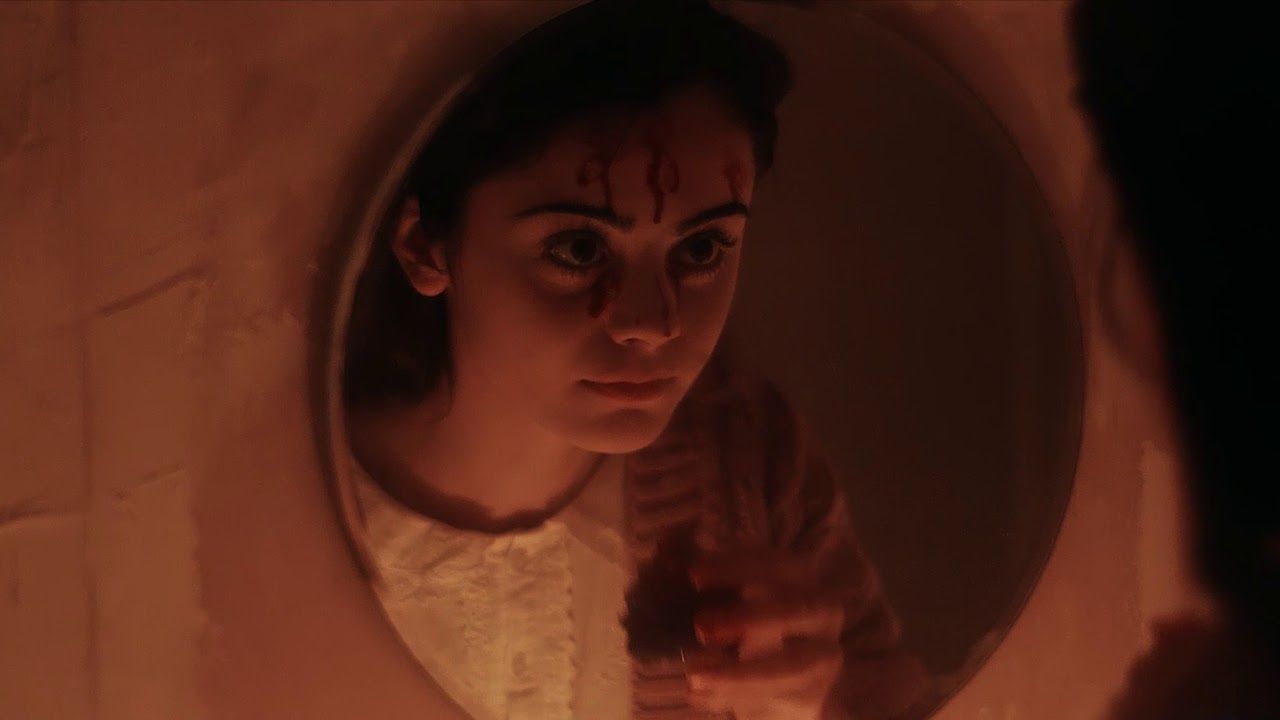
What I like about your writing is that it's academic, but not overly complex. It's nice when academic writing is approachable and doesn't make me feel like I'm some sort of moron.
Good writing shouldn't isolate the reader. If it's only good for a handful of (usually) white old dudes with the same body of knowledge, then it's really good for nothing.
Amen to that!
If you want to follow Valeria online, check out her Twitter and work on MAI 🦇 This post's header image is from René Cardona's "La Llorona" (1960).

